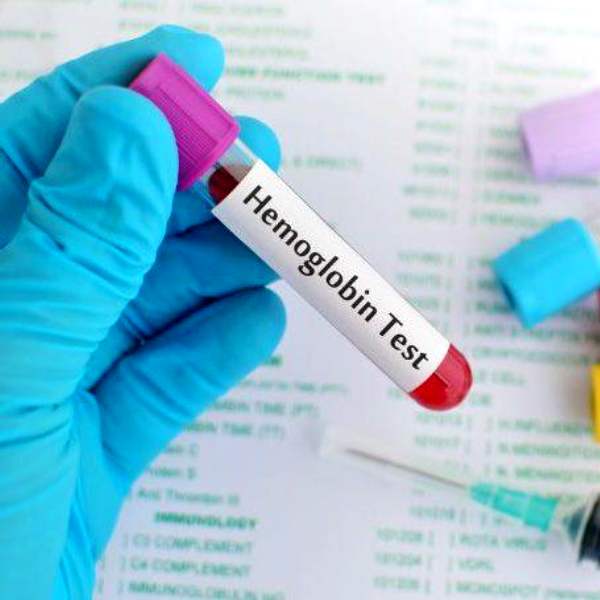Introduction:
Maintaining balanced hemoglobin levels is crucial for overall health. Hemoglobin is the protein in red blood cells that carries oxygen throughout the body. Both high and low levels can lead to significant health issues, making it essential to understand how to manage and maintain optimal levels. This comprehensive guide offers tips for managing hemoglobin levels and promoting overall blood health.

Understanding Hemoglobin Levels
What is Hemoglobin?
Hemoglobin is made up of four protein subunits and iron, giving it the ability to bind to oxygen. Normal hemoglobin levels vary by age, sex, and health conditions:
Normal Ranges:
– Men: 13.5 to 17.5 grams per deciliter (g/dL)
– Women: 12.0 to 15.5 g/dL
– Children: Varies by age
Causes of High Hemoglobin Levels
High hemoglobin levels, known as polycythemia, can occur due to:
– Dehydration
– Living at high altitudes
– Smoking
– Lung diseases
– Certain bone marrow disorders
Causes of Low Hemoglobin Levels
Low hemoglobin, or Anemia, can be caused by:
– Nutritional deficiencies (iron, vitamin B12, folate)
– Chronic diseases (kidney disease, cancer)
– Blood loss (injuries, menstruation)
– Bone marrow problems
Managing High Hemoglobin Levels
1. Hydration
Dehydration can falsely elevate hemoglobin levels. Ensure adequate water intake, especially if you live in a hot climate or engage in intense physical activity.
2. Quit Smoking
If you smoke, quitting can help reduce hemoglobin levels over time and improve overall lung health.
3. Avoid High-Altitude Exposure
If possible, avoid living or spending extended periods at high altitudes. If you must be in such environments, take steps to acclimatize properly.
4. Regular Check-ups
Regular blood tests can help monitor hemoglobin levels and detect any underlying issues early on.
5. Dietary Adjustments
Limit iron-rich foods if you have high hemoglobin due to excess iron. Foods high in vitamin C can enhance iron absorption, so monitor your intake accordingly.
Managing Low Hemoglobin Levels
1. Nutritional Improvements
Iron-Rich Foods: Include sources like red meat, poultry, fish, lentils, beans, and fortified cereals.
Vitamin B12 and Folate: Incorporate foods like dairy products, eggs, leafy greens, and citrus fruits to support red blood cell production.
2. Cooking Methods
Cooking with cast iron cookware can increase the iron content of foods. Additionally, avoid drinking tea or coffee with meals, as tannins can inhibit iron absorption.
3. Supplements
Consult a healthcare provider about iron, vitamin B12, or folate supplements if dietary changes aren’t sufficient. Follow dosage recommendations carefully to avoid toxicity.
4. Regular Blood Tests
Frequent monitoring can help identify deficiencies early. If you notice symptoms like fatigue, weakness, or pale skin, consult your doctor.
5. Manage Chronic Conditions
If you have chronic diseases affecting hemoglobin, work with your healthcare provider to manage these conditions effectively.
General Tips for Balanced Blood Health:
1. Maintain a Balanced Diet
Eating a well-rounded diet rich in fruits, vegetables, whole grains, lean proteins, and healthy fats can promote overall health, including blood health.
2. Stay Active
Regular exercise boosts circulation and overall blood health. Aim for at least 150 minutes of moderate aerobic activity weekly, along with strength training.
3. Manage Stress
Chronic stress can affect blood health. Practice stress-reducing techniques like meditation, yoga, or deep-breathing exercises.
4. Limit Alcohol Intake
Excessive alcohol can affect red blood cell production and overall health. Moderation is key.
5. Get Enough Sleep
Aim for 7-9 hours of quality sleep per night to support overall health and recovery.
6. Avoid Toxins
Reduce exposure to environmental toxins, which can impact blood health. This includes avoiding pollution and chemicals in personal care products.
7. Regular Check-ups
Annual health check-ups can help detect issues before they become serious. Don’t hesitate to discuss any concerns with your healthcare provider.
Managing hemoglobin levels is essential for maintaining overall health. By understanding the causes of high and low hemoglobin and implementing dietary, lifestyle, and medical strategies, you can promote balanced blood health. Remember to consult healthcare professionals for personalized advice and regular monitoring. Taking proactive steps today can lead to a healthier tomorrow!
Why Choose Biocity Healthcare for Hemoglobin Blood Test?
When it comes to monitoring your health, a hemoglobin blood test is essential. Here’s why Biocity Lab stands out as your best choice:
Accuracy and Reliability
Biocity Lab uses state-of-the-art technology and advanced equipment to ensure precise results. Our rigorous quality control measures guarantee that you receive accurate readings every time.
Expert Team
Our skilled professionals are dedicated to providing top-notch service. With years of experience, they ensure that your test is conducted safely and efficiently, with results you can trust.
Quick Turnaround
We understand the importance of timely results. Biocity Lab prioritizes efficiency, delivering your hemoglobin test results quickly so you can take informed steps toward your health.
Comprehensive Services
Beyond hemoglobin testing, Biocity Lab offers a wide range of diagnostic services. This means you can address multiple health concerns in one visit, streamlining your healthcare journey.
5. Patient-Centric Approach
Your comfort and well-being are our top priorities. We strive to create a welcoming environment and provide clear communication throughout the testing process.
6. Affordable Options
Biocity Lab is committed to making healthcare accessible. We offer competitive pricing and flexible payment options, ensuring that everyone can prioritize their health without breaking the bank.
Choosing Biocity Lab for your hemoglobin blood test means prioritizing accuracy, efficiency, and exceptional care. Trust us to be your partner in health—because your well-being deserves the best.. Get in touch today!



